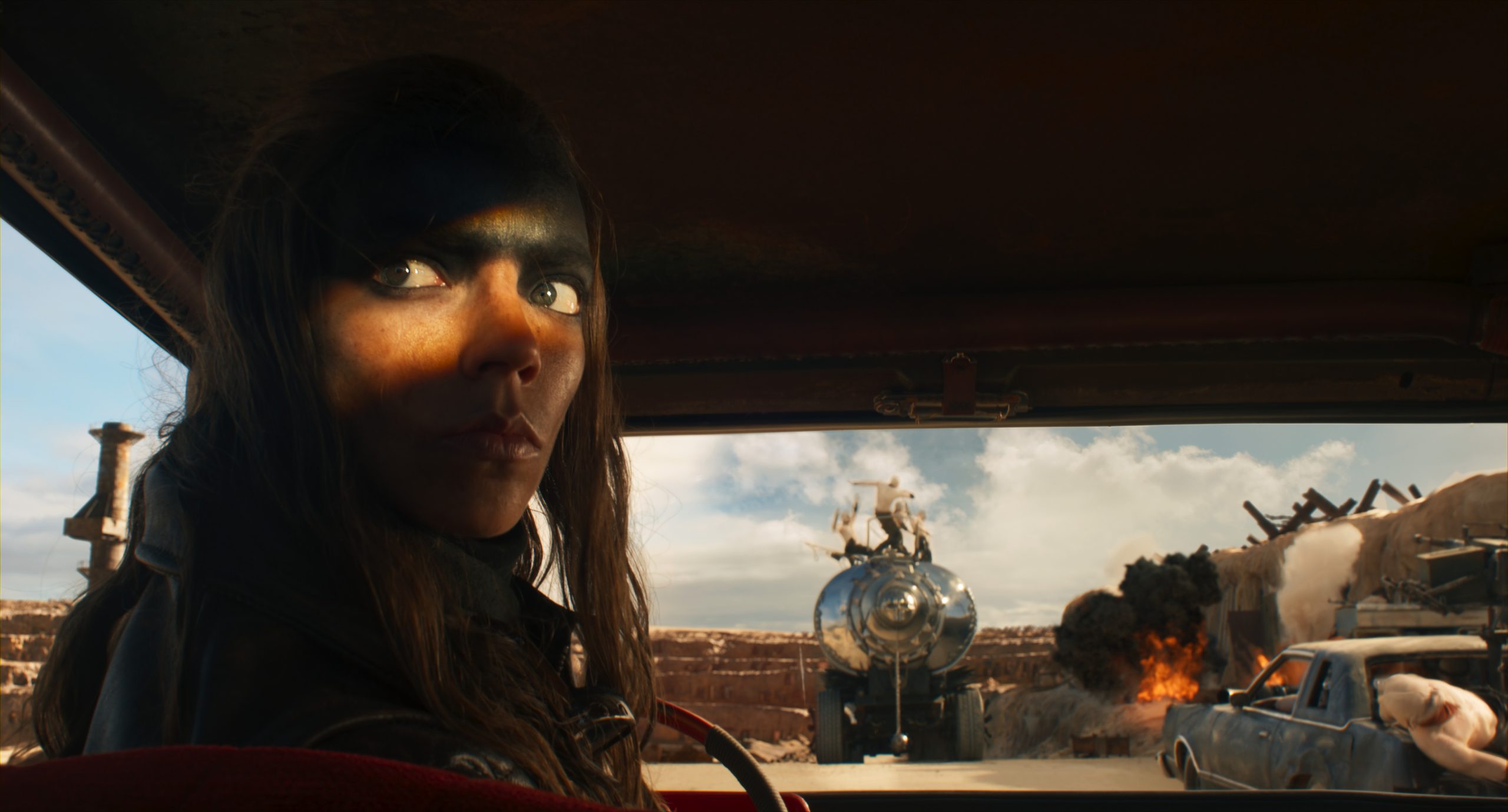
The child comes from the land of abundance. There is greenery, fruit, water, animals — an entire civilization living and working together inside this Edenic enclave surrounded by hot desert. That hot desert is what’s left of Australia, possibly the world, after an undisclosed apocalypse. Technically, we are after the end, yet the story feels like something that existed before the beginning.
The child is Furiosa (Alyla Browne as a girl and Anya Taylor-Joy as a young adult). Viewers of 2015’s Mad Max: Fury Road will know that in time, Furiosa (played in that movie by Charlize Theron) will infiltrate Immortan Joe’s inner sanctum and take on the patriarchy in one of the most spectacular pieces of action cinema ever committed to the screen. But before she can do that, a group of marauders abduct her and drag her into the wasteland, where she will grow up in a cruel world full of brutal people following false prophets and demigods of destruction.
This is the fifth time Australian auteur George Miller has returned to the world of Mad Max, the character once embodied by Mel Gibson for three installments, then Tom Hardy for Fury Road. The first three revolved around Gibson’s Max, iconic for his “a man’s got to do what a man’s got to do” machismo. Then came Hardy’s Max, a bumbling survivor made mad by the world around him while continuing to assist the downtrodden against a corrupt establishment. However, it wasn’t Max who made Fury Road sing of fire and gasoline, but Furiosa. The time had come to cede the spotlight.
Which brings us to Furiosa: A Mad Max Saga, set roughly 15 years before the events of Fury Road. Directed once again by Miller — who co-authored the script with Nick Lathouris — Furiosa is action cinema by way of mythic world-building. Maybe it’s the way the dunes glow yellow or how the place of abundance looks picture-book green, but this movie has the feel of a Biblical epic.
Costume designer Jenny Beavan bolsters that sentiment through Dr. Dementus (Chris Hemsworth), a bearded leader with long locks and clothed in flowing white robes. He drives a chariot of motorcycles, commands a small army of devoted followers and threatens to take the wealth of the few and give it to the many. He probably sees himself as a messiah — one who has his enemies drawn and quartered every now and then.
In a way, Dementus gives birth to Furiosa. His plan is domination, and that’s about as much as he’s thought it through. Her plan is revolution, and it’s as meticulously conceived as they come. Miller and Lathouris use these two like a skeleton key to unlock conflicts that could only exist after the world has burned or before it was born.
Fury Road is a movie for the ages — the action is innovative and exciting; the story spare and economical. You learn only what you need to know to get to the next scene. But Miller’s film still hints at a world much larger outside the story. Fury Road is a movie teeming with life, even though everything appears to be in varying states of death and decay.
Furiosa is in concert with Fury Road. Miller shows you the inner workings of that world with impeccable detail and five delicious sections befitting of T.S. Eliot’s epic poem while still employing narrative restraint. These are not the franchise Easter eggs we’ve come to expect but signposts designed for you to gather your bearings.
Not that you need any to enjoy Furiosa. The movie pulses thanks to the electric performances of Taylor-Joy and Hemsworth — he of mad energy, she of steely calm. Both command the frame, and when the narrative finally pulls them toward their climactic showdown, Miller and cinematographer Simon Duggan frame them against a vast backdrop of nothing. You need only their faces to tell this story of a war that never really began and never really will end.
ON SCREEN:Furiosa: A Mad Max Saga opens May 24.
